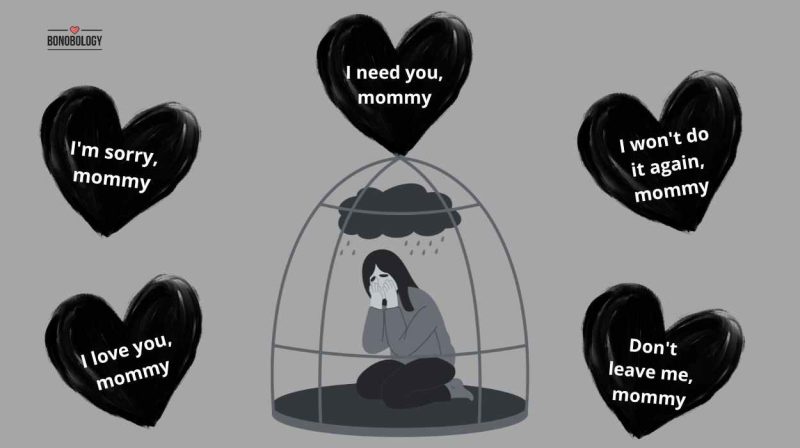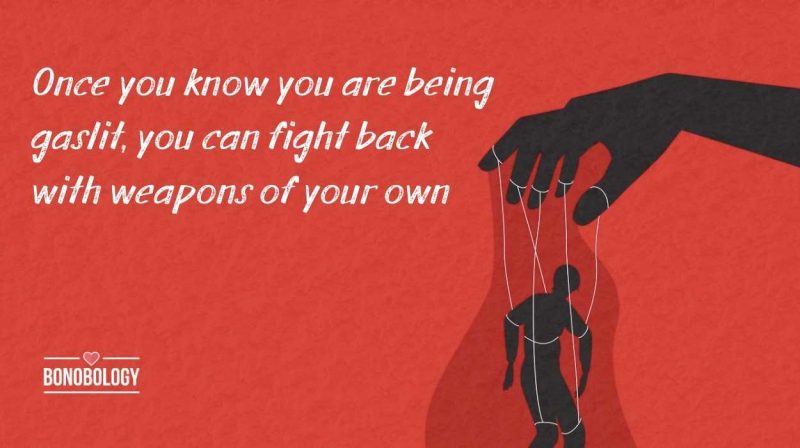Mommy issues in women often develop quietly over the years. We see some mothers and daughters sitting in a room in awkward silence, engulfed in a strong sense of estrangement. They may say the occasional “love you” and “take care,” but the relationship remains cold and deafeningly silent. It can leave the daughter with a gaping mother wound, exhibiting all the symptoms of mommy issues.
But what are the signs of mommy issues in a woman and how do they develop into relationship problems? To answer my questions, I have roped in counseling psychologist Kavita Panyam (Masters in Psychology and international affiliate with the American Psychological Association), who has been helping couples work through their relationship issues for over two decades.
What Are Mommy Issues?
Table of Contents
Mothers sculpt a child – physically in the womb and emotionally through their interactions. The bond is so strong that the sense of self in an individual is built based on their interactions in formative years with their primary caregiver, which is usually the mother according to British psychoanalyst Donald Winnicott.
What happens if the mother is unavailable emotionally during this period? Mommy complex, that’s what. These are the issues that develop due to an unhealthy relationship between the mother and her children. It’s loosely defined as a lack of deep connections between mother and child. When the superficial bond washes away with years, the surface beneath is revealed – a huge void that screams toxic mommy issues.
Related Reading: 17 Signs You’re With An Emotionally Immature Woman
What is the psychology of mommy issues in women?
Let’s talk about mommy issues psychology with our expert. “The causes of mommy issues are mostly associated with a lack of emotional presence. These issues can develop if the mother was toxic, manipulative, estranged, absent, or even overly doting. If the mother was not present during her daughter’s emotional dependency days, she can form attachment issues in her future relationships,” says Kavita. She adds, “Some characteristics of mommy issues develop when your mother was there for your basic needs, but not emotionally.”
In some cases, the early death of a mother can lead to signs of mommy issues in women. Or a disabled mother may not have been able to nurture the daughter as per the latter’s needs. Mommy issues in relationships can also stem from nitpicking. If a mother was unkind or continuously critiqued her daughter, it can compromise a kid’s self-worth. Further, if the mother was mean to her child from the beginning, the child may begin imitating the behavior, resulting in a range of mommy issues in women from insecure attachment to toxic tendencies.
Insecure attachment styles include being avoidant, ambivalent, or disorganized. Insecure attachment theory has roots in psychological concepts of insecurity due to childhood maltreatment. Most people associate the need for mother’s love and attention with Freud’s theory of the Oedipus complex. But while Freud focused on the ‘competition’ that a male child supposedly has with the father for this attention, mommy issues are not gendered and don’t have the sexual undercurrent Freud stressed.
Here are the different kinds of women with mommy issues:
- “A daughter can show insecurity by being clingy or resentful in a relationship while trying to fill the large void left behind by the mother. She could be secretive toward her partners or doubt their feelings. She might demand that her partner treat her like a queen if she was too pampered by her mother. She wants to be the priority in the partner’s life,” says Kavita
- Furthermore, if a woman spent her childhood always wanting to make her mother happy, she will become submissive in her future romantic relationship or marriage
- Daughters with toxic mommy issues may have a difficult time showing vulnerability to romantic partners. Mommy issues may also prompt them to exhibit controlling behavior, where they demand affection but have difficulty being affectionate with their partner. And when it is time for commitment, the woman might just become a runaway bride
- But do women who have mommy issues mean they had bad mothers? Well, that is not always the case. It is always prudent to realize that unloving or emotionally unavailable mothers might carry scars of their own. In a way, it answers the question asked in the beginning: What does it mean for a girl to have mommy issues? The mom in this scenario perhaps imbibed issues from her own mother
Related Reading: 8 Signs You Were Raised By A Toxic Mother: With Healing Tips From An Expert
7 Signs Of Mommy Issues In Women
Georgina, a nurse from Iowa, told us, “I had a manipulative, chaotic mom. She would threaten to leave the house over small disagreements, making us cower before her.” Georgina said that she had learned to keep quiet to avoid arguments, a trait she exercises in all her relationships. “I took abuse from my boyfriends. I never replied to their retorts out of fear of abandonment. I’d rather have a difficult relationship than be alone,” she said.
“Among the first symptoms of mommy issues is that the daughter tries to replicate her bond with her mother and seeks unhealthy relationships. She thinks of herself as an extension of her mother. She cannot set personal boundaries,” says Kavita, adding, “It will affect her attachment with friends, partners, and children. It might affect her ability to have a satisfying relationship.” Here are a few signs of mommy issues in relationships:

1. Women with mommy issues have low self-esteem
Alina, a corporate analyst, got a handsome bonus at work earlier this year. “I was being modest and honest when I – slightly timidly – asked my boss if I deserved it. My boss wittily replied, saying he was the boss and he did not have to explain himself.”
This line, though encouraging, took Alina down the memory lane when her mother had blurted similar words to her in a completely different context. “‘I am your mother, I do not have to explain myself to you,’ she had said to me after one of our arguments when I was 18,” Alina said, adding, “I have dealt with lack of affection all my life. She has told me that she loves me perhaps five times in 25 years of my existence.”
Alina and her mother stopped talking when she was 22. At that time, Alina claimed that her mother told her she did not care if they never spoke again. They did not speak for months and later only exchanged polite hellos.
- This kind of emotional disconnect in mother and child relationships can give rise to mommy issues among women. The arguments of the past can become the phantoms of the future, like in Alina’s case. A mother’s hurtful dialogue pushed her into self-doubt – Alina did not understand if she had worked enough, despite her boss’s assurance
- Several women like her, because of a strained relationship with mothers, have been scared of not doing enough in many aspects of life. The internalized mother’s voice drills in them a sense of inadequacy about their own abilities
- “They are not self-sufficient. The effects of not bonding with mother can lead a woman to live by her mother’s ideals. She does not know that she is a person in her own right. The daughter can be overly sensitive if the mother was unavailable or pushing victimhood,” said Kavita
- This may also result in a rebel-without-a-cause streak. If you do things just to reject and rebel against a mother figure, it’s one of the signs you have authority issues
2. They deal with trust issues
“Babies are completely dependent on their mother. If the baby was left crying for a long time, they will not trust her,” Kavita said. Perhaps there was a time in your childhood, when you innately trusted your mother with something and she forgot. It happened repeatedly till you could not trust her.
- The inability to depend on the person who was meant to care for your physical and emotional well-being can lead to deep-seated trust issues. This is a way for your mind to be prepared for any eventuality and feel safe in the event of uncertainty
- This lack of trust is among the many causes of mommy issues in women. You may find it difficult to trust anybody with your responsibilities. You would refrain from lending anything to friends with the fear of them not returning or damaging the object or asset
- You may even wonder why a friend is confiding in you because you suspect them of having a hidden agenda behind the confession
Related Reading: Avoidant Attachment: Causes And How it Affects Relationships
3. Escapist tendencies become part of their personality
What does it mean for a girl to have mommy issues? If you avoid getting into romantic relationships or refrain from forming good friendships out of the fear of getting hurt, it could be because of the effects of chaotic childhood. “A woman with mommy issues will have an avoidant style where she does not want to get too close to anybody,” says Kavita. A woman with mommy issues will prefer to stay alone than make an effort to form intimate relationships.
- Plenty of solitude makes a person oversensitive to things real or imagined. So a random comment by someone may actually be viewed as something too personal
- This happens among daughters who have tried to excessively please their mothers, according to Kavita. “In such cases, your mother would be your best friend. Where you should have had healthy connections at your age, when you should have been going out with friends and discussing things, you ended up doing all that with your mom. She replaced friends and even personal space,” says Kavita
4. Constant fear of failure due to perfectionism and insecurities
A college-going student from Nevada, Sofia says that she had become timid and afraid to speak up on the smallest of issues, fearing she may say something wrong. She had been a young model and, for the most part, homeschooled. Her mother was overly involved in her career and would constantly check her diet and her weight so she’d have the perfect female physical features that attract others. “My mother thought I was a prodigy, so she accelerated my coursework. I could not focus on my goals, and my self-confidence plummeted,” says Sofia.
By the time she started college, Sofia could not focus on either modeling or academics. “I was stressed because I felt I was not good enough to pursue both. When I chose to complete my degree, my overly critical mother said I was a failure. Now, I cannot stand to be around her,” she adds.
- Fear of failing is also a sign of mommy issues among women. This is because over-protective mothers have set absurd standards for you since your childhood
- This ‘overly critical parent’ syndrome creates a cyclical pattern when one feels incessant need to attain perfection, but is unable to step out of the comfort zone because of the fear of failure

5. They have difficulty setting healthy boundaries
Patricia, a college student with an English major, recounted a complex relationship example involving her close but overprotective friend Alicia. Alicia, Patricia says, would always want to be around. When she wasn’t, she would often be consumed by the fear of missing out. “Alicia would text me at least ten times if I was at a party or out with other friends,” she says, adding, “When I did not respond to her texts, she would often throw a temper tantrum.”
Alicia’s parents had divorced when she was a teenager. Her custody was given to her father and her mother was only allowed to visit on certain days. That too reduced after some time as Alicia’s mother pursued new dreams, a new partner and her own home. “On many occasions, Alicia told me that she missed having her mother around,” says Patricia.
- A woman with mommy issues could turn out to be an overbearing friend, an overprotective sister, or even a clingy or obsessive lover
- She would look for or try to become a mom friend, meaning that she would want to be a crucial part of someone’s life to fill the void left behind by the absence of her mother. Such daughters find it difficult to create boundaries in many adult relationships
6. They suffer from “It is hard to be a mommy” syndrome
Maternal abandonment effects on daughters are often cyclical in nature. A woman may end up projecting childhood trauma, i.e., treat her child the way she was treated by her mother. They could be distant or unavailable, simply absent or even too nurturing. A mother’s role in early childhood could affect her daughter’s parenting style in the future. “A woman learns how to raise her children by watching her mother. A daughter will try to emulate the mother’s parenting style,” says Kavita.
- A mother may have fulfilled the daughter’s basic requirements but skipped honing their emotional needs and well-being
- In such a scenario, the daughter will innately internalize her mother’s behavior when she has kids, resuting in a strained relationship with them
- In such cases, partners can help offer a perspective. It is prudent to observe the partner’s behavior toward the child to fill in the emotional gaps. Women who are mothers can rely on their partners to discuss, identify, and work through their feelings
Related Reading: Expert Suggests 7 Ways To Help Someone With Trust Issues
7. A woman with mommy issues has fewer female bonds
Lack of female friends is also one of the signs of mommy issues in a woman, according to Kavita. “You don’t trust women or you are jealous. Likewise, being a tomboy could also be one of the signs of a toxic mother-daughter relationship. They are not very feminine, and not very masculine,” she explains.
- Such feelings can be generated in a woman if her mother has constantly told the daughter that she is ugly, useless, and worthless. Such allegations perhaps made her feel less feminine
- “Such daughters are avoidant, they need their space. They don’t go deep into healthy relationships. Moreover, they might lack a sense of self,” adds Kavita.
How To Work Through Mommy Issues and Heal
It’s not impossible to heal from mom trauma, though it’s probably the most difficult thing you’ll go through. A major reason for this is the bond itself, which connects a child and the mother. Not only is it intensely emotional, but it often transcends a logical approach. It’s also because of sociocultural conditioning that labels mother-child relationships as divine or sacred. In such a climate, even suggesting the presence of mommy issues in girls is considered vilification. Then how do you heal from mommy syndrome?
1. Acknowledge and accept the problem
It’s extremely important to be able to say that you have an unhealthy attachment to mother. It may get difficult because of the guilt you feel for calling out your mother on her behavior, or because you have to accept that you have a problem in the first place. But this is the first step you take.
- Express your pain. It could be through a journal, a poem, or just talking to a couple of people. Say it out loud, “My mother is very negative and controlling, and this has affected me.” It’s not easy to say things like, “My mom is emotionally unavailable”, but you must acknowledge such unsavory truths to truly leave your trauma behind
- Try not to confront your mother as part of self-acceptance. This relationship is too complicated to be fixed by name-calling
- Remember, you can’t change your mother or your relationship with her overnight by simply acknowledging and accepting the issue. This step may help you kickstart the journey, but telling her “I’ve got issues, and so do you” will not do anything. Just forgive her if you can, and move ahead
Related Reading: How To Love Yourself In A Relationship – 21 Practical Tips

2. Practice self-care
Perhaps an overused and mostly misunderstood phrase, practicing self-love and self-care is not about short-term dopamine bursts through shopping or Korean masks. You need to practice self-care and self-awareness as if you were doing it for someone extremely close.
- Be kind to yourself. Avoid telling yourself that “you’re useless” or “you screwed up.” Instead, give positive self-affirmations. Say, “I learned a lesson today.” People make mistakes, and it’s an essential part of growth
- Practice gratitude as a way of taking care of yourself. A helicopter mommy and a control freak nature can manifest in later years as perfectionist behavior and procrastination. Instead of saying “I’m a failure,” do positive affirmations such as “I have done so-and-so while surviving in a traumatic environment”
- This also means accepting that a major part of your life was a result of you trying to fulfill your mother’s expectations. In cases like this, you may end up falling prey to perfectionism or imposter syndrome due to low self-esteem. Try to separate the parts of your life that are the result of your mommy issues from the parts that are you. And try to do things that you enjoy without the weight of anyone’s expectations
3. You’ll need to unlearn and re-condition your mind
A major part of working on your self-image is unlearning the behavior that has been instilled in you due to the absence of proper emotional support.
- Parent yourself. Be gentle and kind, and think about why you want certain things. If memories from your past are creating discord in your life, learn to let go of the past. Even if you observe signs your mom doesn’t like you, remember, it’s not a reflection of you. It’s a reflection of her feelings for herself
- Observe the first thing you feel at every incident that makes you feel negative. Dig deep and try to find the pattern in your thoughts behind this negative self-talk. A good example would be when you hear someone brag about their achievements and you begin to feel embarrassed about your life. This is an echo of your mother’s philosophy from the past where she compared you to other kids. This is the conditioning that you’ve got to let go of
- Go out and make new experiences. A new perspective can greatly help in recognizing the things that are part of conditioning that hold you back from evolving into a better person

4. Separate feeling from thought
Another major step you can take to get out of mommy issues is to separate your feelings from your thoughts.
- A person is defined by their feelings, not thoughts. So remember, it’s important to understand what you’re feeling rather than letting your thoughts take over
- Let me give you some mommy issues examples. In Gilian Flynn’s Gone Girl, Amy’s parents were overly critical and passive-aggressive. This made Amy insecure and constantly seek perfection, to the point where she turned psychopathic. In her other book, Sharp Objects, Flynn wrote about a mother with Munchausen syndrome who poisoned her daughters to feel like a caregiving mother. This leads to the death of one of her daughters, and psychopathic tendencies in another. Now these are some extreme examples, but in both cases, the thoughts the characters have are of wanting attention. But the feeling behind these thoughts is insecurity
- When you understand what you’re feeling, it’s easier to process that feeling instead of spiraling down by engaging with that thought. You need to deal with insecurity in order to stop begging for someone’s attention
5. Find a social support system
Working on your mental health while you’re alone is very difficult. You need a support system at times like this.
- Go out with close friends, talk to them, and engage with them. Make a new experience. Adopt a new hobby
- This will also mean that you learn to identify the difference between healthy relationships and the ones that feel familiar and comfortable just because they mimic the complicated relationship you have with your mother
- You may or may not choose to be with your mother at this time. It’s a very personal decision, and it may not always be a choice, especially if your mother is dependent on your care. Either way, you need to work on your boundaries
Related Reading: 9 Proven Benefits Of Counseling – Don’t Suffer In Silence
6. Seek professional help for mommy issues
It’s great that we live in times where it’s becoming a little less of a taboo to talk about mental health and seek therapy. If you observe signs of an emotionally unavailable mother in you, then a professional can help where self-help books can’t.
- Several therapists specialize in childhood trauma and focus on helping people get out of the shadows of their caregivers. Think of them as personal trainers of the mind
- At Bonobology, we provide an excellent panel of therapists and counselors to talk about your personal issues
The term ‘mommy issues’ is also problematic in its own way. Most of the problems that we label as mommy issues stem from lack of care or emotional support. Society has often viewed mothers as nurturers or primary caregivers where they’re expected to provide unconditional love. So, when this equation flounders, it is the mother who suddenly becomes the mistress of evil in a child’s life.
Key Pointers
- Mommy issues may develop due to an unhealthy emotional connection between a mother and her child
- Mommy issues can lead to a low self-esteem, trust issues and unhealthy attachments in future relationships
- To work through mommy issues, it is important to acknowledge the unhealthy relationship, work on a healing journey, and stay consistent in your efforts
A mother could be absent and unable to nurture her daughter because of an illness, a disability, or resentment due to an unplanned pregnancy. Or a child may suffer due to her mother’s untimely death. In such cases, once they’ve grown up and introspected, they must seek help to address this absence. It is imperative to resolve childhood issues before they create a mother wound.
This article has been updated in August 2023
FAQs
Mother issues can cause major problems in both creating relationships and sustaining them. A woman with mommy issues will look for a partner who has her mother’s traits. Even if you had a dysfunctional relationship with your mother, you would check your partner for her characteristics because that is what you are comfortable with.
Other signs of a controlling mother include a fear of commitment instilled in the child. So if you are avoidant, you might play mind games with your partners, give the silent treatment, or not commit. You might emotionally push and pull the partner – Give too much space or too little space. This is how mommy issues in women manifest.
Both men and women can have mommy issues. Its primary sign includes a constant emotional connection with the mother. Their mother will know their entire day’s schedule and she may even call the shots for her married son. On the extreme side – if the mother was absent – a man would avoid questions about her; he would get angry and upset. A man with mommy issues may have problems trusting women thinking that all of them are like his mother. He might get into a constant cycle of getting into relationships and dumping the partner to fulfill his rage.
Men with complicated relationship with mothers are likely to cheat in relationships. They may expect their partners to pick up the lion’s share of responsibility – Earn, cook, and look after the children. These men might also prefer one-night stands to a fulfilling relationship.
The Role Of Self-Esteem In Relationships – Take This Test To Assess Yours Today!
Mother-Son Relationship: When She Won’t Let Go Of Her Adult Son Even After Marriage
My Mother Abandoned Me As A Child For A Lesbian Relationship
Your contribution does not constitute a charitable donation. It will allow Bonobology to continue bringing you new and up-to-date information in our pursuit of helping anyone in the world to learn how to do anything.






















